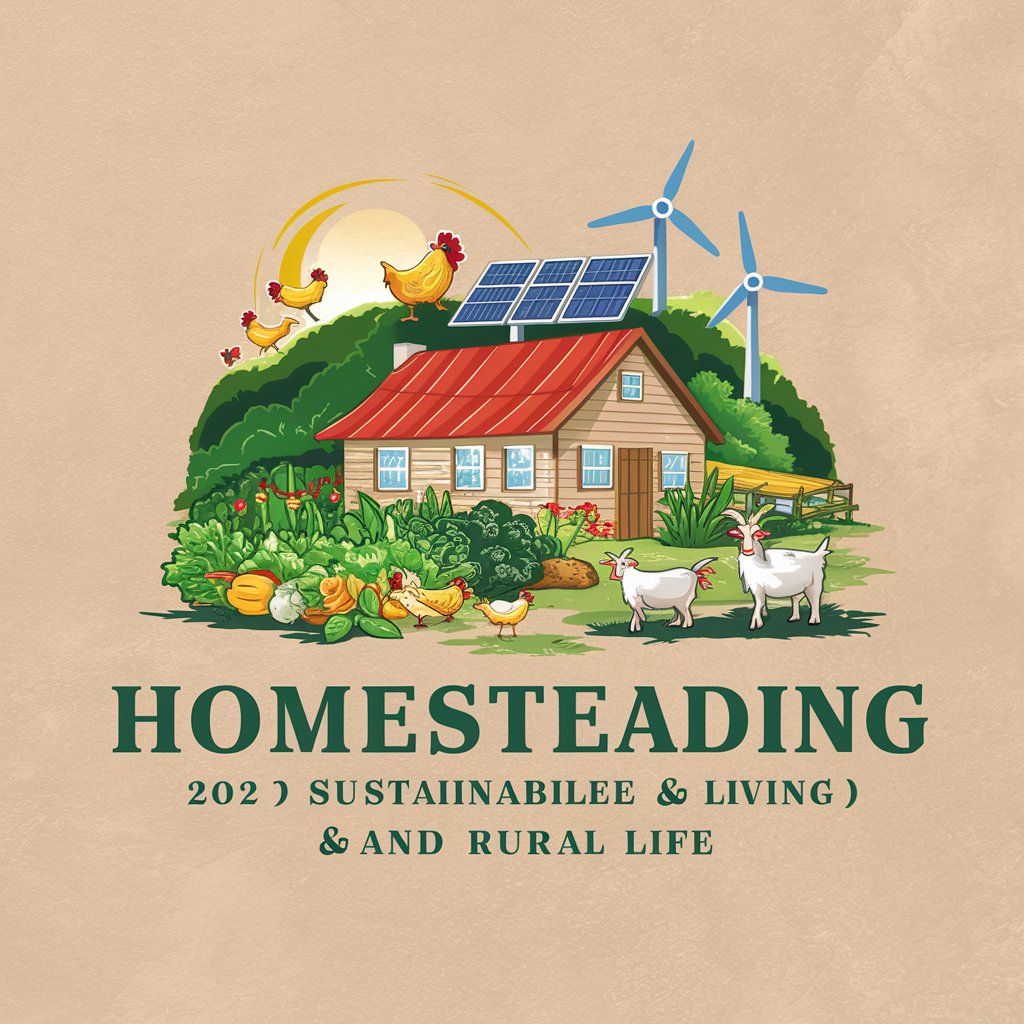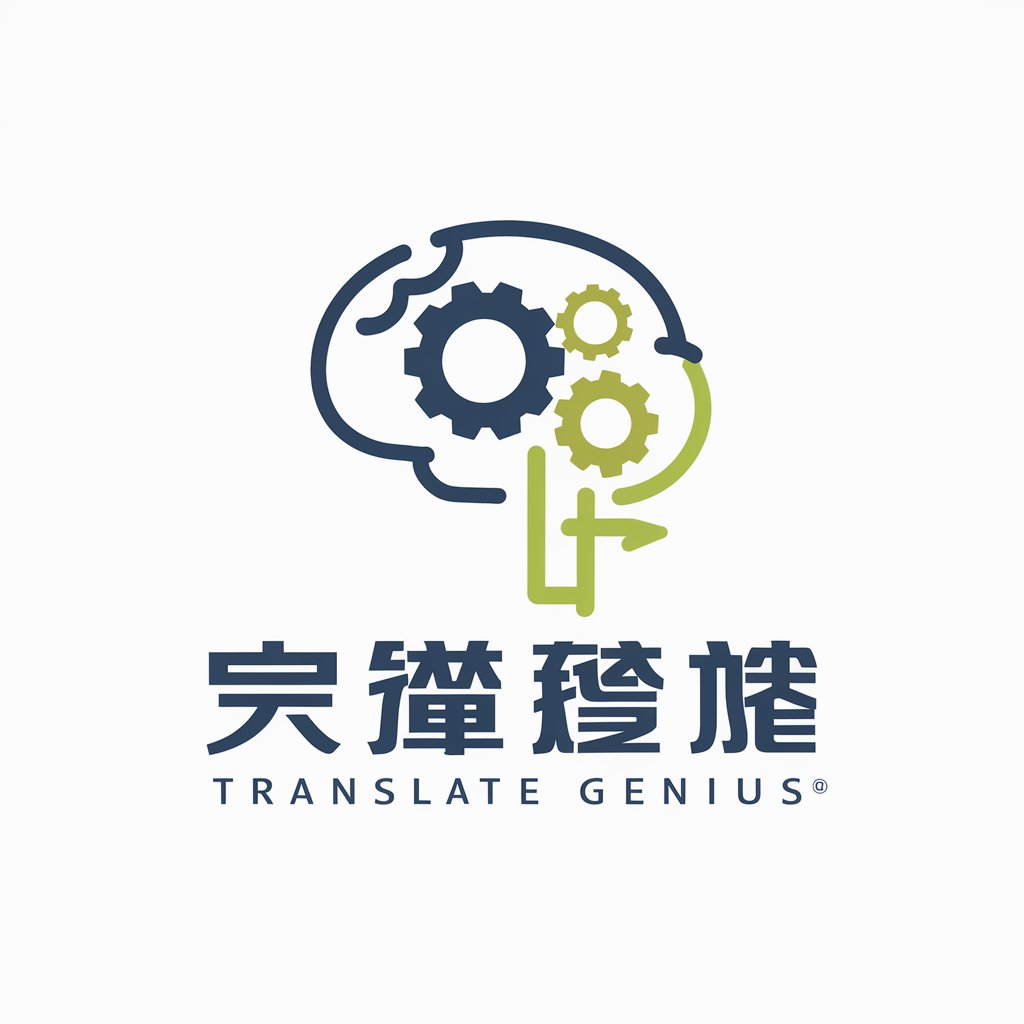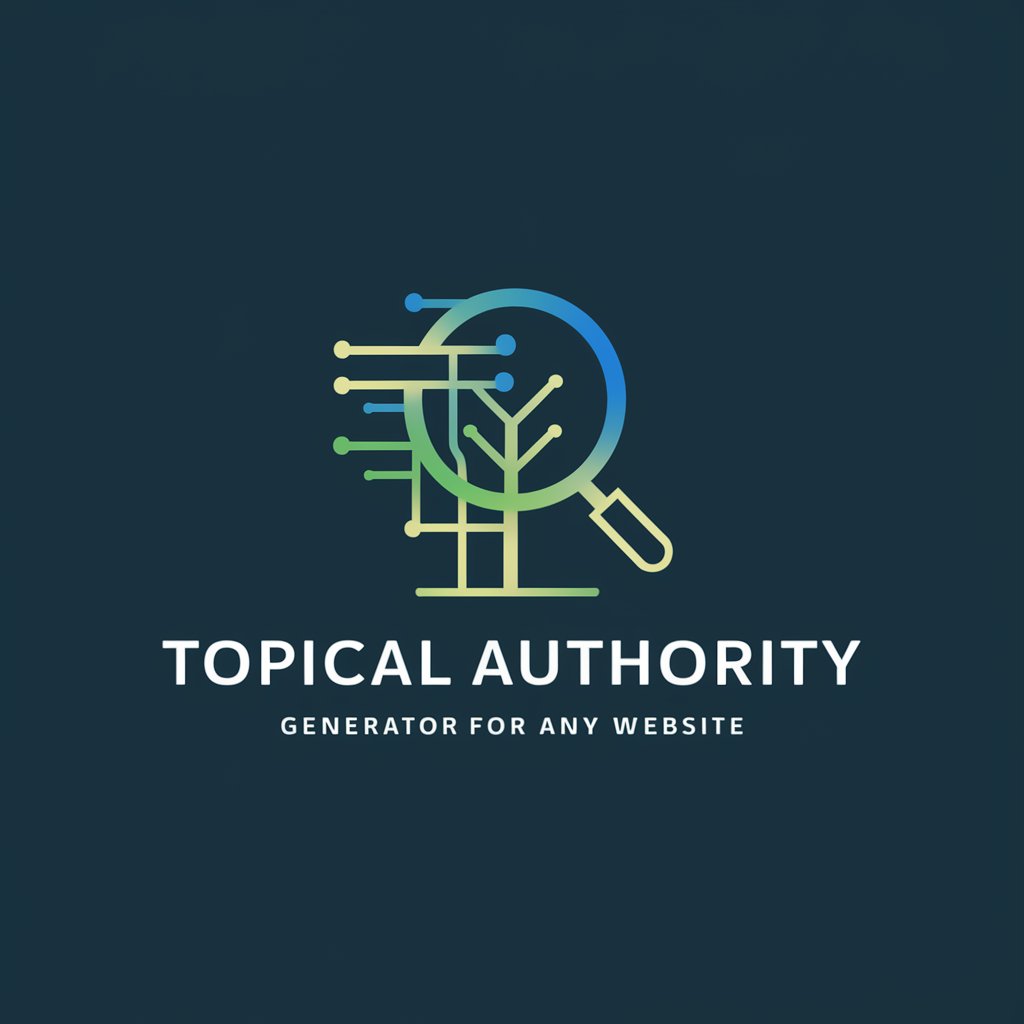Homesteading - Sustainable Living Guidance

Welcome! Let's explore sustainable homesteading together.
Empowering Sustainable Homesteading with AI
What are some effective methods for composting on a small homestead?
How can I start raising chickens for eggs in my backyard?
What are the best crops to grow in a limited space garden?
How can I create a rainwater harvesting system for my homestead?
Get Embed Code
Understanding Homesteading
Homesteading is centered around the principles of self-sufficiency, sustainability, and living a life closer to nature. It involves a broad range of activities from growing your own food, raising livestock, preserving food, and utilizing natural resources wisely to minimize waste and reduce environmental impact. The purpose of Homesteading is to provide insights, advice, and practical tips to those interested in pursuing a lifestyle that is less dependent on commercial services and more focused on personal and community resilience. This includes guidance on agriculture, animal husbandry, eco-friendly practices, and DIY solutions for creating a sustainable living environment. For example, someone looking to start a vegetable garden would find detailed advice on soil preparation, planting guides for different climates, and natural pest control methods, illustrating how to begin with small, manageable steps towards self-sufficiency. Powered by ChatGPT-4o。

Homesteading's Core Functions
Agricultural Guidance
Example
Providing step-by-step instructions for creating a permaculture garden.
Scenario
A user with a small backyard wants to maximize food production while promoting biodiversity.
Animal Husbandry Advice
Example
Tips on raising backyard chickens for eggs, including coop design, feed, and healthcare.
Scenario
An individual interested in starting to raise chickens for self-sufficiency and as a source of organic eggs.
DIY Solutions for Sustainability
Example
How to build a rainwater harvesting system using recycled materials.
Scenario
A family looking to reduce their water bill and impact on the local water supply by collecting rainwater for their garden.
Eco-Friendly Practices
Example
Methods for creating a composting system to reduce kitchen waste and improve garden soil.
Scenario
A person seeking to minimize waste and enhance their garden's fertility without chemical fertilizers.
Who Benefits from Homesteading?
Aspiring Homesteaders
Individuals or families looking to transition from a conventional lifestyle to one of greater self-sufficiency and environmental stewardship. They benefit from foundational knowledge and step-by-step guides to gradually adopt homesteading practices.
Experienced Homesteaders
Those who already have some experience with homesteading but are looking to expand their skills, explore new techniques, or improve their sustainability practices. They can find advanced tips, troubleshooting advice, and community wisdom.
Environmental Advocates
People dedicated to reducing their carbon footprint and living more sustainably. They benefit from eco-friendly DIY projects, conservation techniques, and guidance on reducing waste and energy consumption.
Urban Gardeners
Residents of urban areas seeking to grow their own food, raise small livestock, or implement sustainable practices within limited spaces. They benefit from tailored advice on container gardening, vertical farming, and small-scale composting systems.

How to Use Homesteading
1
Visit yeschat.ai for a free trial without login, also no need for ChatGPT Plus.
2
Identify your homesteading or sustainable living question or challenge to focus your inquiry.
3
Use specific keywords related to your question to get tailored advice, such as 'composting', 'rainwater harvesting', or 'solar power installation'.
4
Engage in follow-up questions to deepen your understanding or clarify the advice received.
5
Apply the suggestions and tips in your homesteading activities, and consider documenting your progress for future reference.
Try other advanced and practical GPTs
LLC
Empowering your business with AI-driven LLC insights.

翻译天才
Transcend Language Barriers with AI

Moving Assistant
Streamline Your Move with AI-Powered Guidance

Eloquent Mentor
Elevate Your Words with AI

Topical Authority Generator for any Website
Empowering Websites with AI-Driven Authority

愛希
Empowering Creativity with AI

CANVAEGYPT AI
Elevate Your Style with AI-Powered Fashion Advice

Feeling
Navigating emotions with AI-powered insights.

Prints
Empowering Art Enthusiasts with AI

Ghosts
Unveiling the unseen, one story at a time.

Morgan Bridger
Empowering SOP Excellence with AI

Assistant to the DM
Elevate Your D&D Sessions with AI

Homesteading Q&A
How can Homesteading help me plan my vegetable garden?
Homesteading can provide advice on garden layout, companion planting, seasonal considerations, and organic pest control methods to optimize your vegetable garden's yield and health.
Can Homesteading offer guidance on raising backyard chickens?
Yes, it can offer insights on coop design, feed and nutrition, egg-laying breeds, and natural health remedies for keeping your chickens healthy and productive.
What sustainable energy solutions does Homesteading suggest?
Homesteading provides information on solar panel installation, wind turbines, biofuel options, and energy conservation techniques to reduce your carbon footprint and lower energy costs.
How does Homesteading assist with water conservation?
It offers strategies such as rainwater harvesting systems, drip irrigation for gardens, greywater reuse, and water-saving tips for households to help you conserve water efficiently.
Can Homesteading provide DIY tips for home repairs and improvements?
Absolutely, it gives step-by-step guidance on basic carpentry, plumbing repairs, energy-efficient insulation, and other home improvement projects that you can undertake to enhance your living space sustainably.
